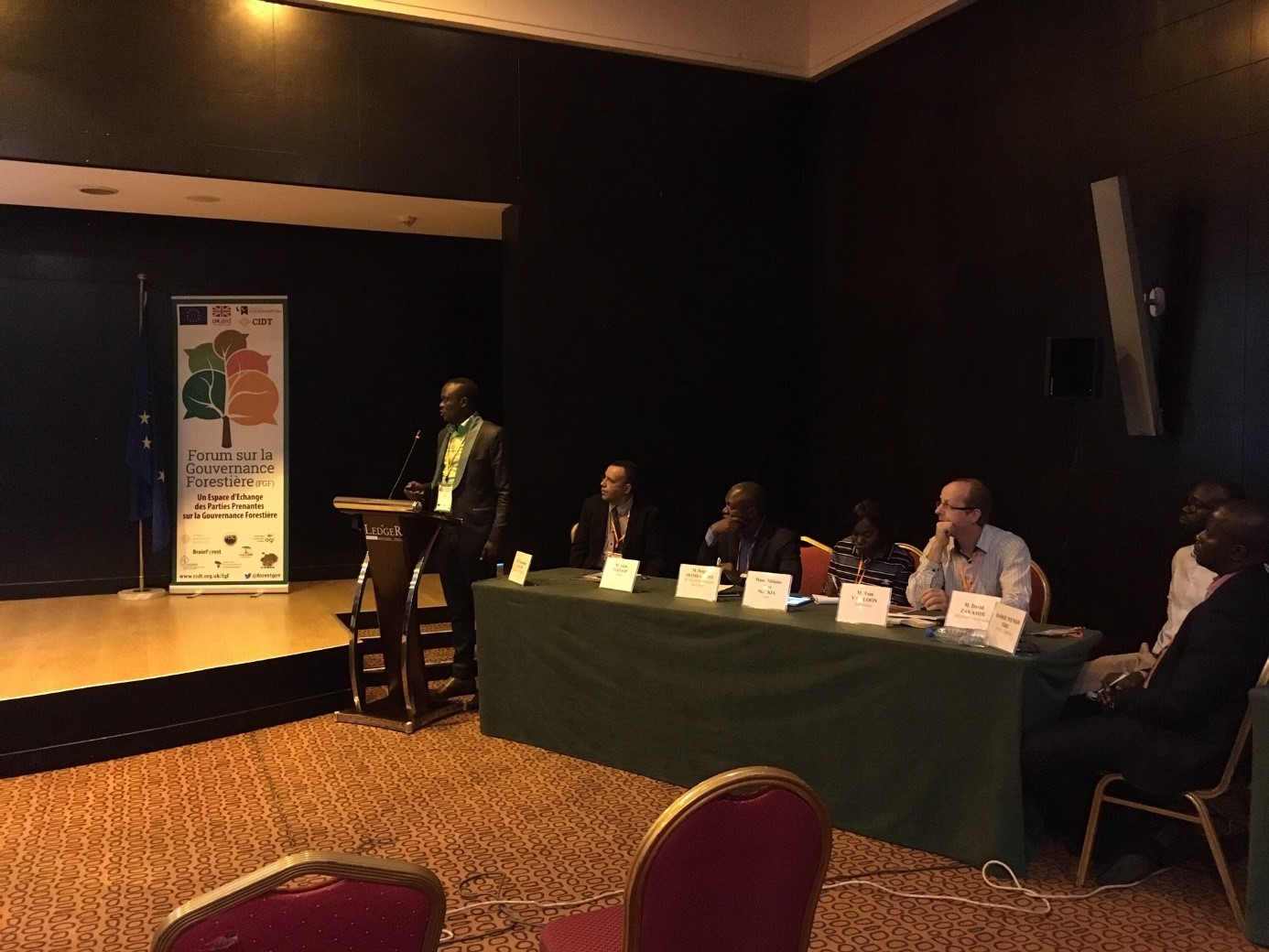

09.11.2018
The Forum for Forest Governance, held in Brazzaville on October 30 & 31, was an opportunity to show the general public the contribution of the private sector of the timber industry to good forest governance. It was the 11th edition of the Forest Governance Forum, and the first time the private sector participated. There were about 300 participants, mainly from Africa and Europe, but also from Indonesia and the United States. The Forum is intended to be a preparation for Chatham House FLEGT meetings, and the Congo Basin Forest Partnership (CBFP) meeting.
 Together with CIB-OLAM, IFO-INTERHOLCO, CEB-Precious woods, the FFAB association, et the Programme for Promotion Certified Forest Exploitation (PPECF), ATIBT organised a session about certification. The presentations showed how certified forest companies contribute to local development, combatting poaching, and more transparency in the forest sector. It also presented the support possibilities through the PPECF programme. The objective of the session was to motivate civil society organisations to support companies that engage in the certification process. After a question if certification is still viable now that the evolution of FSC certified forests is stagnating, an interesting comparison was made by the moderator Emmanuel Heuse: « It’s not that we stop distributing mosquito nets because there’s still malaria either”.
Together with CIB-OLAM, IFO-INTERHOLCO, CEB-Precious woods, the FFAB association, et the Programme for Promotion Certified Forest Exploitation (PPECF), ATIBT organised a session about certification. The presentations showed how certified forest companies contribute to local development, combatting poaching, and more transparency in the forest sector. It also presented the support possibilities through the PPECF programme. The objective of the session was to motivate civil society organisations to support companies that engage in the certification process. After a question if certification is still viable now that the evolution of FSC certified forests is stagnating, an interesting comparison was made by the moderator Emmanuel Heuse: « It’s not that we stop distributing mosquito nets because there’s still malaria either”.
ATIBT also participated in two other sessions. The first one was organised by the World Ressources Institute (WRI) and emphasized the need to define national zoning plans. During this session ATIBT recommended to:
The other session was organised by the African Framework initiative (AFi) which is seeking to improve corporate environmental and social responsibility of companies through more transparency. It was the occasion for the initiators to present the SPOTT initiative of the Zoological Society of London (ZSL). SPOTT evaluates the environmental and social responsibility of companies based on a large set of indicators which are measured based on public available information. At the same time, it can be considered by a company as a tool to measure its level of communication about these subjects. ATIBT presented a series of currently available transparency initiatives and recommended to minimise the number of these websites. The multiplication of transparency sites asks the more and more time from companies to fill out data. Less sites will also improve and simplify access to information by clients and other stakeholders.